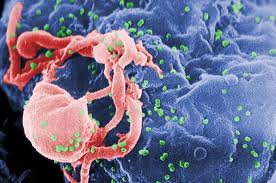The Global Fund has allocated a significant grant of $933 million to Nigeria under its Grant Cycle 7 (GC7), spanning from 2024 to 2026.
This substantial funding aims to address the pervasive public health challenges posed by HIV, Tuberculosis (TB), and Malaria in the country.
Of the total amount, $340,095,438 is specifically earmarked for HIV-related initiatives. The National Agency for the Control of AIDS (NACA) will receive $10,663,394 to spearhead the coordination of a comprehensive, multisectoral response to the HIV epidemic.
NACA disclosed this development on Friday through a press statement signed by its Head of Public Relations and Protocol, Toyin Aderibigbe. To initiate the GC7 grant, a four-day retreat was organized for the newly established Project Monitoring Unit.
This retreat aimed to acclimate the new team members with their roles, evaluate past successes, identify areas needing improvement, and formulate actionable strategies for future endeavors.
In her welcome address, NACA’s Director General, Dr. Temitope Ilori, underscored the significant achievements under the previous GC6 grant.
These accomplishments included training healthcare personnel, equipping laboratories, and engaging communities in meaningful ways. Dr. Ilori urged participants to build on these successes to effectively tackle HIV-related challenges.
“While we celebrate these remarkable achievements, we must task ourselves to improve upon our past efforts by being efficient and intentional in sustainably addressing the public health challenges of HIV through the use of reliable data for effective decision-making,” stated Dr. Ilori.
Key activities planned under the GC7 grant include the expansion of HIV and TB Gender and Human Rights interventions at both national and sub-national levels.
Additionally, the development of strategic plans for all 36 states and the Federal Capital Territory, leveraging the HIV National Strategic Plan 2023-2027, is a priority.
Other initiatives include the implementation of medically assisted treatment for persons who inject drugs using methadone or buprenorphine, enhancement of HIV coordination at the sub-national levels through direct support to State Agencies for the Control of AIDS, and the conduct of the HIV Integrated Biological and Behavioural Surveillance Survey 2024.
Dr. Ilori outlined her vision for the HIV response under her leadership, focusing on fostering a domestically driven HIV response that aims to end AIDS and its associated conditions as public health threats in an effective, efficient, and sustainable manner.
She called on all stakeholders to contribute to this shared goal, emphasizing the importance of eliminating mother-to-child transmission of HIV in collaboration with the National HIV, Hepatitis, and STI Control Programme.
Dr. Ilori also highlighted the need to strengthen the health sector’s resilience and sustainability to respond to public health emergencies and achieve the goal of ending AIDS as a public health threat by 2030.
“I urge you to reflect on how our work can ensure that we eliminate mother-to-child transmission of HIV in collaboration with the National HIV, Hepatitis, and STI Control Programme.
Contribute meaningfully to the sector-wide approach of the Ministry of Health, further strengthen the health response to become more resilient and sustainable, ensure that we can respond to any public health emergency, and end AIDS as a public health threat by 2030,” she said.
The allocation of the $933 million grant marks a significant milestone in Nigeria’s ongoing efforts to combat HIV, TB, and Malaria, reflecting a concerted commitment to public health and the well-being of its citizens.
Do you want to share a story with us? Do you want to advertise with us? Do you need publicity for a product, service, or event? Contact us on WhatsApp +2348183319097 Email: platformtimes@gmail.com
We are committed to impactful investigative journalism for human interest and social justice. Your donation will help us tell more stories. Kindly donate any amount HERE




